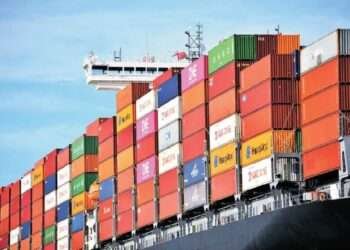Maintaining its firm position not to sign onto the domestic debt exchange program (DDEP), the Individual Bondholders’ Forum (IBF) Technical has proposed some fiscal measures it suggests can help government save Gh¢83.5 billion, insisting the Ministry of Finance must not touch its funds.
In a statement issued and signed by the Convener of IBF, Mr. Senyo Hosi, the group opined that government can save ¢20 billion from privatizing selected State-Owned Enterprises to Tier-2 pension funds to drive efficiency and productivity.
“Divest loss-making, defunct and troubled 17 State-own enterprises in the country. Government can realize funds from the divestiture with ownership still retained by the workers of Ghana. These SOEs may include the Electricity Company of Ghana (ECG) and Ghana RE.
“Review and rationalize the budget of SOEs and increase capping of high revenue generating SOEs to shore up central government revenue and reduce waste in SOEs.”
IBF Technical Committee
The Petroleum Sector
Communicating on behalf of the group, Senyo Hosi averred that the budget provision for the energy sector shortfall of Gh¢23 billion should be revised downwards by Gh¢3 billion through the reduction of transmission losses, technical losses, and administrative inefficiencies.
They as well stated that government must maintain the 2022 capital expenditure level by reducing the non-Annual Budget Funding Amount (ABFA), Municipal and District Assembly budget and foreign finance of Capital Expenditure by 50 percent.
“Cap the subsidies on the premix petroleum at ¢200 million thereby reducing the budget by ¢150 million. Owing to the wanton abuse of this subsidy, provide discount coupons to registered fisherfolks for the purchase of premix.”
IBF Technical Committe
In the oil and gas sector, the group stated that a drop in the oil production from over 200kbpd to below 160kbpd led to a revenue loss of more than $300 million (¢3.6bn) in 2022.
“The government should, as a matter of urgency, review the regulatory and fiscal environment to encourage existing producers to ramp up production and develop new fields”.
“Government should exercise its right under the Aker petroleum agreement (Deepwater Tano) to repossess the block or compel the immediate commencement of development by the contractor. This field has the potential of delivering up to 100kbpd yielding over GHS5.6bn per year to the government.”
IBF Technical Committe
Touching on measures that can be implemented to generate more revenue, Senyo Hosi urged government to expedite reforms to enforce property taxes and ensure effective Taxes in the country.
According to them, with landed properties of circa 2,200,000 in Ghana (Ghana Population and Housing Census 2021), achieving an average annual rate of ¢1,000 per property at a collection efficiency of 50%, will yield the government over ¢1.1 billion in revenue.
“Rise above politics and fully enforce the VAT invigilation that saw the rise of VAT revenue by 1000% in some cases. This assumes a 15% over the 2023 estimated VAT collection of ¢23.7 billion.
“Pursue the recovery of the over GHS5bn tax evasion in the petroleum downstream sector (2016-2021).”
IBF Technical Committe
In a bid to be exempted from the DDEP, the IBF advised government to pay heed attention to getting back lost funds through financial irregularities of Municipal Development Agencies in the Auditor General’s Reports from 2015 to 2022. That exercise, the IBF, says could bring in ¢13.9 billion.
According to the IBF, the measures proposed per the estimation of the IBF yield net savings of ¢83.5 billion. The IBF holds the position that the recommendations are competent enough to urgently address the fiscal challenges and enable us to reach the desired 55% debt-to-GDP target proposed to the IMF.
The Technical Committee in concluding emphasized the need for continued engagements between the Government of Ghana and IBF on the debt exchange programme, as well as the government’s structural reforms to ensure macroeconomic stability and promote economic recovery.
Read Also : Tullow Oil Raises 2022 Free Cash Flow Guidance to US$267 million
,























